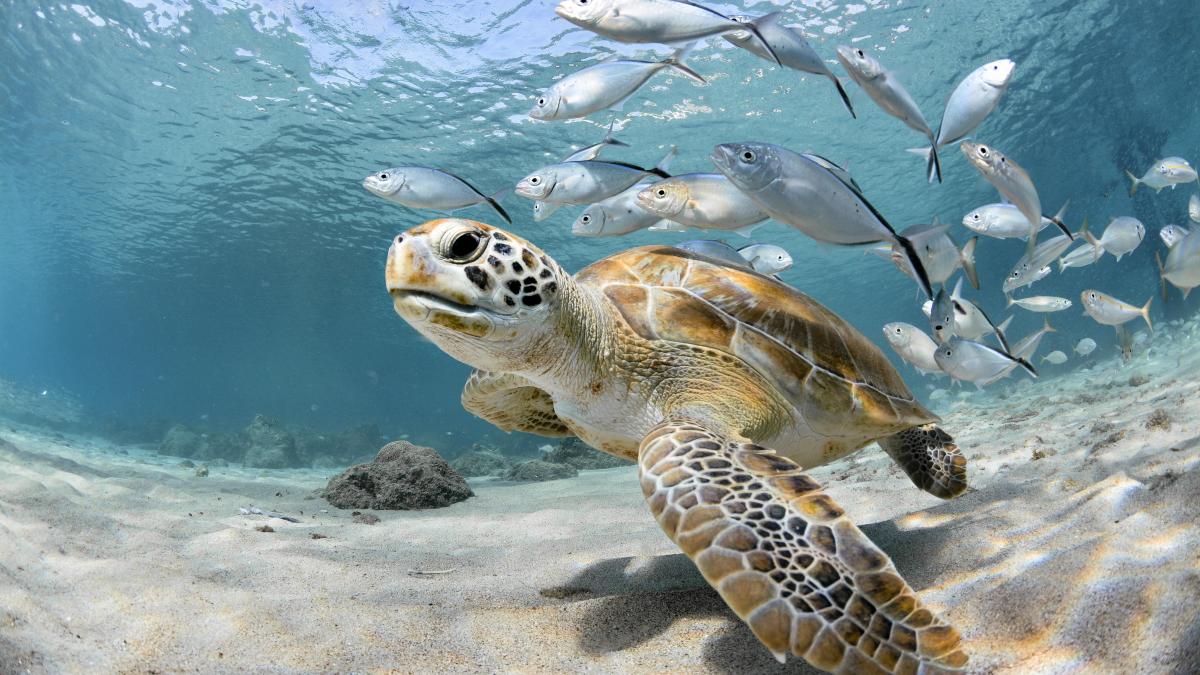The ships Arctic Sunrise and the Witness they pressure Spain to ratify the Global Ocean Treaty: Arctic Sunrise and the Witness ask for the ratification of the Global Ocean Treaty. The Arctic Sunrise will visit the Basque Country, Galicia and Mallorca, while the Witness will document the waters of the Mediterranean. The organization Greenpeace urges the Spanish Government to accelerate without further delay the ratification of the Global Ocean Treaty after the vote in favor of European Parliament. He Arctic Sunrise and the Witness They will study pollution or the rise in sea temperature.
He Arctic Sunrise You are going on a tour that has 3 stops in ports. The first of them will be in the port of Bilbao During June 7, 8 and 9, where there will be visits to the ship, workshops for all audiences related to the oceans, the environmental organization will celebrate the World Oceans Day on June 8 with the performance of a benefit concert on Saturday night. Later he will go to Vilagarcía de Arousa (Galicia) where the ship’s open doors will continue, workshops for all audiences related to the oceans and a participatory workshop to work with the artisanal fishing sector and the Ría de Arousa for the impacts it is facing. The tour will end its journey in Palma de Mallorca where in addition to visits to the ship, there will be conferences with the scientific community to highlight the importance of marine reserves in our waters.
He Arctic Sunrise arrives in Spain to demand immediate ratification of the Global Ocean Treaty by the Spanish governmentat least 60 countries must ratify before June 2025 so that it can come into force and thus be able to declare the first ocean sanctuaries that allow us protect at least 30% of international waters by 2030.
After the approval of the European Union as a whole, it is the turn of the member countries to ratify this high seas protection treaty approved more than a year ago at the United Nations. As of May 2024, The treaty has been ratified by only 5 countries: Palau, Chile, Seychelles, Belize and Monaco (first European country). But Spain still has not ratified said treaty, which is why the environmental organization asks the Spanish Government to accelerate ratification and allocate funds for its implementation, as well as to continue supporting a precautionary pause against underwater mining, a new emerging industry that Governments and companies, mainly from the global north, are trying to implement this, which would cause irreparable damage to our oceans.
Our waters At the national level they must also have 30% protection by 2030 and thus comply with international commitments, but beyond the percentage of protection written on paper, we need them to have some management plans that make their protection effective and do not remain in paper parks. He Witness It will document the Mediterranean seabed and its state of conservation and thus highlight the importance of our seas having effective protection that allows their conservation.
Spain is the leader in the European Union in terms of fish catches refers, in 2022 it will catch a fifth of the EU’s catches. Our oceans are in a critical situation, 35% of the world’s fishery resources are overexploitedwhich is why Spain and its fleet play a key role in the sustainability of the oceans. 78.1% of the Spanish fleet belongs to minor arts, but only 10% of the fish we consume in Spain comes from artisanal fishing, it is a sector that is in decline. For this reason, the environmental organization will be in Bilbao and Galicia with the artisanal fishing sector to denounce the numerous threats that this sector faces, such as the impacts of industrial fishing, pollution and the climate and biodiversity crisis, as well as the social situation of the sector.
Marine reserves are key spaces for the recovery of the biodiversity of an area since they are free of impacts or human activity. The artisanal fishing sector itself supports marine reserves since they have seen the benefits they have for fishing. For this reason we need our waters to also have a 10% of spaces with strict protectionthat is, areas free of impacts such as marine reserves, which allow the recovery of biodiversity and fishing stocks. More information about the tour and open stops.

